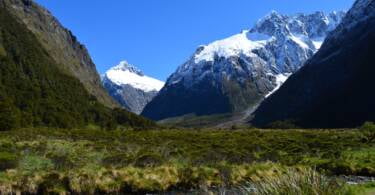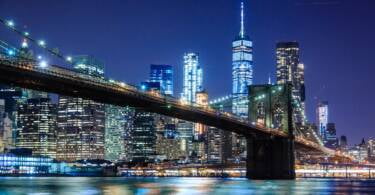Being part-Japanese is a gift, even if it did make for a slightly strange childhood.
Being part-Japanese is a gift, even if it did make for a slightly strange childhood. Let’s face it, Japan is a mythical and odd place to those in the West, full of customs and traditions that don’t really make sense to anyone else.
If you ever decide to go to Japan, here are the things to try and get your head around before you go:
Bowing
Let’s start with the basics and things you probably already know. People in Japan bow to each other as a means of saying hello and goodbye. It’s really out of respect and tradition, and is just the done thing, even if you think it looks a bit weird. Give it a go and whoever you’re with will really appreciate it, even if you feel like a dork. Just remember to bow from the waist and not clasp your hands together like you’re praying. That’s only in the movies.
Tipping
In Japan, the cost of services are included in everything, so you must never ever tip. People actually find it quite offensive to be offered extra money, so best to avoid tipping waitresses or cab drivers just in case you insult someone.
Taxi doors
 On the subject of taxis, you’d be wise never to close a taxi door.
On the subject of taxis, you’d be wise never to close a taxi door.
All taxis are incredibly clean, but also have automated doors that close themselves, and by slamming a door shut you can mess with the mechanism on the taxi.
Japanese people rarely shout, but if you go to pull a taxi door close, you might face the wrath of the driver.
Kneeling & eating
Sitting down for dinner is a totally different experience in Japan. Firstly, in most restaurants and certainly in people’s homes, you’ll be expected to take your shoes off. BUT you must put slippers on, as it’s considered rude to wander around anywhere in bare feet.
Confused? Just think outside shoes are for outdoors only, but your feet should be covered at all times. Secondly, you will be expected to kneel or sit on the floor for dinner, especially in traditional restaurants.
A lot of places now have low tables with space for your knees, but if you feel the cramp setting in, sitting cross legged is also perfectly acceptable.
Masks
This starts the moment you set foot on the plane, as you’ll see plenty of Japanese people wearing sterilised masks on public transport and in the street.

The Japanese are deathly afraid of germs, even though it’s probably the cleanest country you’ll ever visit, and most people wear masks to keep them from breathing in anything.
Okay, so it looks amusing, but think about all the times you’ve caught a cold on a plane? It’s okay, you can buy one in almost every pharmacy.
Bath tubs
Japanese bath time is a whole different ball game. The Japanese build huge, wide and deep metal baths called an ofuro, but you absolutely musn’t wash yourself in the bath.
The idea of the ofuro is to be able to cleanse yourself with clean water. Every bathroom will be tiled, like a big shower, and have a separate shower head and stool and basin outside the bath. You should wash yourself here, rinse off and then relax in the hot water.
It takes a bit of getting used to, but it actually makes perfect sense. After all, who enjoys sitting in their own shampoo water?
Hot springs
 Public bathing is something we’re never going to get our heads around in the West, but if you have the chance when you’re in Japan, let go of your inhibitions and give it an onsen a go.
Public bathing is something we’re never going to get our heads around in the West, but if you have the chance when you’re in Japan, let go of your inhibitions and give it an onsen a go.
Hot springs are a natural wonder in Japan, and produce therapeutic and healing water. You’ll also find them in the best places, like a cave in the mountains or overlooking the sea.
Okay, so it’s a bit awkward wandering around naked with a load of other people, but the baths are split into men and women, and you’ll get a little locker for your belongings.
Besides, once you’re in the water, nobody can see what you’ve got going on and, I can’t stress this enough, nobody is judging.
Obon
The Day of the Dead in Japan is a big deal, as the Japanese are incredibly respectful of their ancestors. During Obon, the whole country will shut down, and not in a Bank Holiday kind of way.
You won’t find a single soul in a shop or restaurant during Obon, as everyone leaves the cities to go spend time with their families. In their homes, people hang portraits of their deceased relatives (this is undeniably creepy) and offer their shrines their favourite foods to eat.
Breakfast
 Japanese food is weird yet wonderful, but it often doesn’t get any weirder than breakfast. Unless you request a continental breakfast, you’ll find yourself served a strange mix of sweet and savoury, including rice, fish and pickles.
Japanese food is weird yet wonderful, but it often doesn’t get any weirder than breakfast. Unless you request a continental breakfast, you’ll find yourself served a strange mix of sweet and savoury, including rice, fish and pickles.
If you’re young, you’ll most likely be offered a glass of milk at breakfast, as this is the expected thing for growing girls/boys.
But if, like me, a glass of milk alongside a fillet of mackerel is just too gross to handle, feign an allergy and you should get by.
Politeness
It is true what everyone says – Japan is possibly the most polite country in the world. Nobody speaks loudly on their phones on public transport or in shops.
In fact, if you have to answer your phone at all, it’s best to do it outside and keep your voice down. Most Japanese people leave their phones on vibrate. Oh, and blowing your nose in public is a bit of a no no too.
Chopstick Etiquette
The final and probably most important thing to know before heading to Japan, is the rules and regulations surrounding chopsticks. I know, it’s just two pieces of spindly wood, but table manners are pretty important to the Japanese.
If you’re sharing food, always take some and put it on your own plate before eating. Never use chopsticks as a knife and fork – the stabbing and tearing thing is never a good look.

Also, never touch chopsticks with someone else e.g. don’t help someone else pick up a piece of food or take food from them, it’s considered bad taste and also doesn’t look good for the person who can’t lift their sushi.
It might be a little mind boggling, but a trip to Japan is well worth it.
There’s a reason the other side of the world is so far away, and that’s because East and West are so staggeringly different. But, if they weren’t, there’d be no point in travelling.
What do you think? Have your say in the comments section below.








